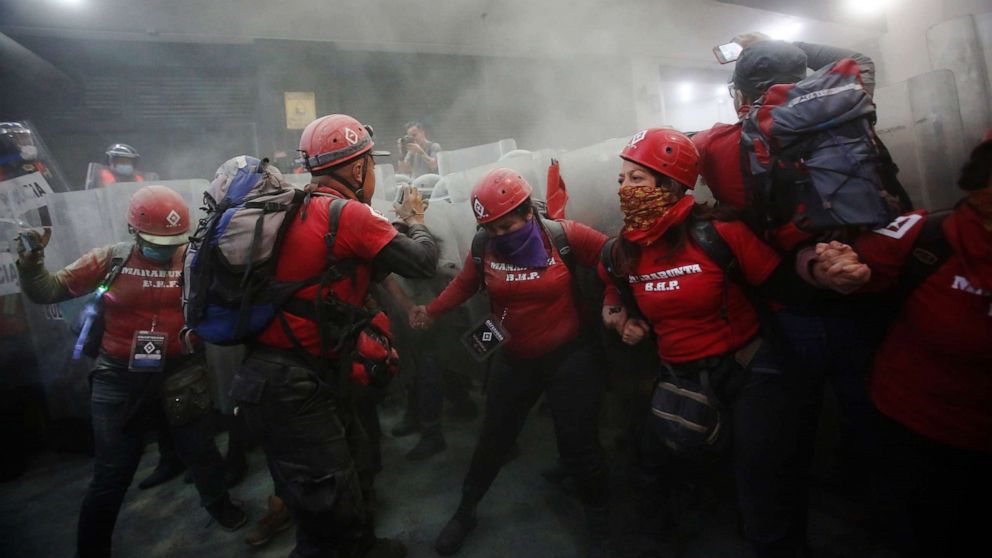More than 380 women have been killed in Mexico this year. Activists say a cultural change is needed.
Last month's grisly murders of a 25-year-old woman and 7-year-old girl sent a flood of feminists and other activists into the streets of Mexico City.
With chants of "Ni una más," or "not one more," and "El patriarcado va a caer" ("the patriarchy will fall"), women in Mexico were once more demanding their voice be heard. And this week, feeling as though their cries fell on deaf ears, thousands participated in the "Day Without Women" that called for women to stay home from school, work and halt any household chores to protest gendered violence.
The killings, though, did not stop.
By one account, at least 386 women have been killed in instances of feminicide in Mexico since Jan. 1, according to activist Frida Guerrera, who has been documenting cases daily since 2016. On average, that amounts to more than five murders of women a day in the first 68 days of the year (as of March 8).
Official statistics have not been released for this year, but previous counts show that since 2016 the numbers have starkly increased. In 2019, the Mexican government reported 1,006 women were believed to have been killed because of their gender.
Activists say feminicide, known as feminicido in Spanish, are cases in which not only are women and girls killed because of their gender, but the perpetrators enjoy impunity because of the government’s inaction in addressing violence against women, according to Dr. Paulina García-Del Moral, an assistant professor at the University of Guelph who has researched gendered violence in Mexico.
Femicide, a related term, is most often described as the killings of women due to their gender, but does not account for official complicity or inaction. Broader definitions of femicide include any killings of women or girls, despite the motivation, according to the World Health Organization.
Femicide typically involves domestic violence and men as perpetrators, but can involve women, the WHO said. There are challenges in collecting the data because "police and medical data-collection systems that document casesof homicide often do not have the necessary information or do not report the victim–perpetrator relationship or the motives for the homicide, let alone gender-related motivations for murder." But the data is getting better, the organization said.
While in many cases feminicide and femicide are used interchangeably, activists say it is important to make the distinction because the latter does not account for the state's complicity.
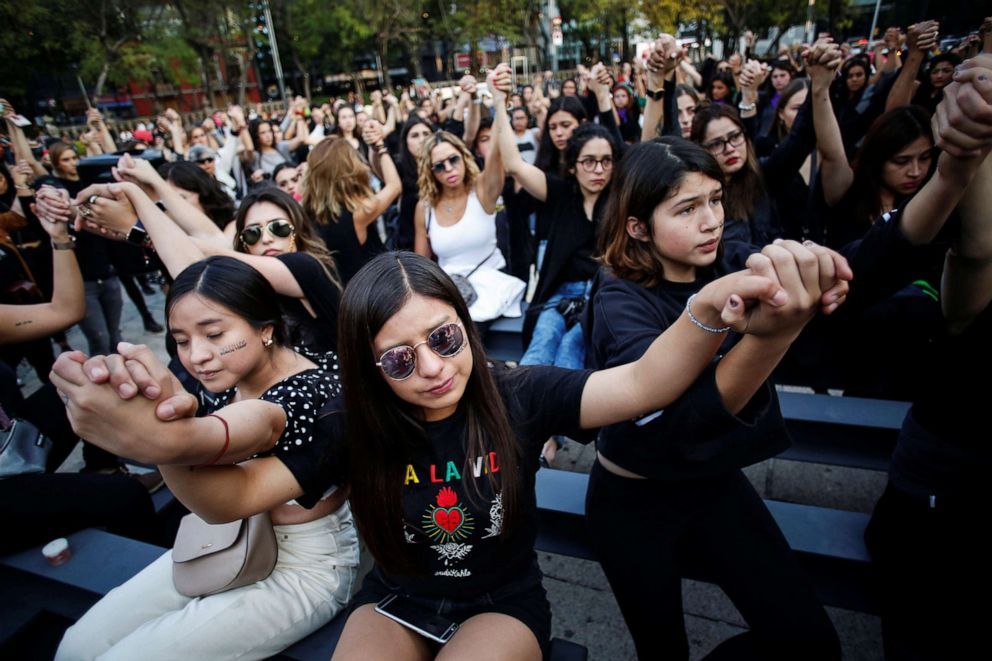
Though women are homicide victims in countries throughout the world, in Latin America, the rates of violence against women are among the highest.
As such, some countries, like Mexico, have codified the crime of feminicide on a federal level, according to García-Del Moral. In Mexico, the crime is defined as "depriving a woman of her life for gender reasons," including if a victim was subjected to sexual violence, was mutilated, if the victim and perpetrator were in an intimate relationship, or if a victim's body was exposed or exhibited in a public place, Garcia-Del Moral said.
As for the portion of the law that deals with official responsibility, the legal definition of feminicide includes punishment for public servants who hindered or delayed an investigation or did not properly report it as feminicide, according to Garcia-Del Moral.
However, it remains difficult to prosecute such crimes.
UN Mujeres, a United Nations entity that focuses on gender equality, says that despite these laws, gender-related killings are often "the last act in a series of violent acts that go unrecognized and unaddressed."
The day 25-year-old Ingrid Escamilla was found brutally murdered, allegedly by her boyfriend, on Feb. 9, there had been 239 reported cases of women or girls killed. The day after, the activist Guerrera reported there had been 250.
Photos of Escamilla's body were published in a local tabloid the next day, along with the caption, "La culpa la tuvo Cúpido," or "Cupid was to blame," according to UN Mujeres.
A young girl named, Fátima, 7, was murdered only days after that, with her body found wrapped in a plastic bag, according to the Associated Press. Mexico City's Mayor Claudia Sheinbaum classified the killing as feminicide and the city's attorney general, Ernestina Godoy, said there would be an investigation into how the case was handled, according to the BBC.
Based on the federal legal definition of feminicide, both killings appear to be instances of femincide.
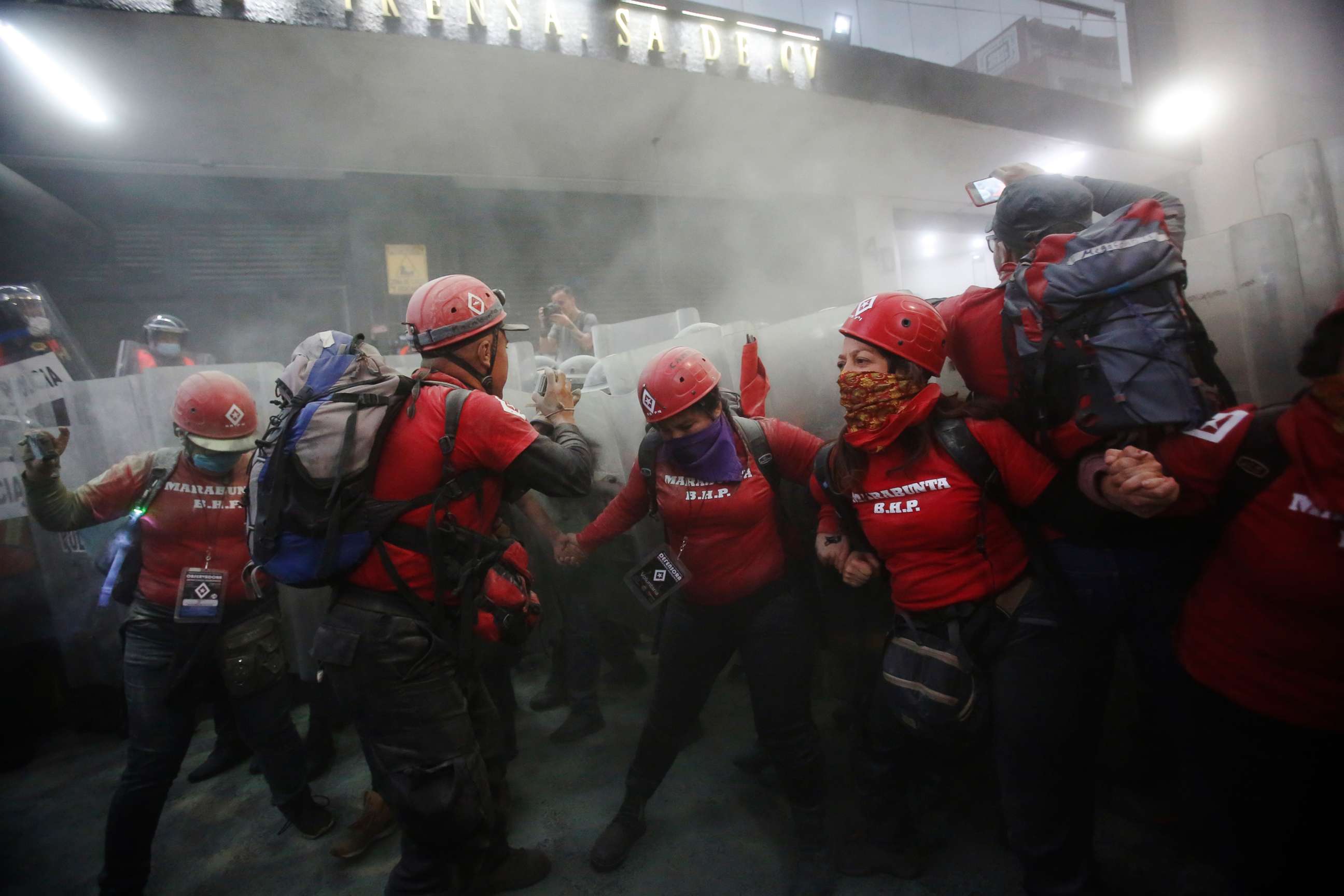
Experts say that while the feminist movement has picked up steam in recent years, the vast amount of killings still taking place daily proves there is a long road ahead.
The rate of women being killed in the country has been on the rise since 2016, when the rate was 4.5 per 100,000 women, according to UN Mujeres.
In 2018, the rate once more increased, and about 10 women were murdered per day, according to the organization.
In 2019, it rose to 10.5 women per day, UN Mujeres reported. That year, out of the total 3,825 killings of women, 1,006 involved victims of feminicide, according to government figures provided by UN Mujeres.
García-Del Moral told ABC News in a telephone interview that feminists began protesting against the brutal killings in 2016, coinciding with the rise in homicides.
“The murder of Escamilla and Fatima brought heightened visibility,” she said. “Yet another boiling point, but there’s been many and that is really sad.”
García-Del Moral said there has been a sustained interaction between feminists and the Mexican president. However, it’s one that many hoped would play out differently.
President Andrés Manuel López Obrador has offered mixed messages on the fight against gendered killings. At one point he blamed the killings on moral decay in the country as a whole, according to García-Del Moral. But she said such an explanation doesn't properly address the social problem in the country that includes “deep roots" in the patriarchy and traditional gender roles.
Obrador has also been quoted saying that femicide is the result of the "decadence of neo-liberalism" and, in one instance, reportedly said he did not want to address gender-related killings because he did not want "femicides to distract from the raffle," referring to a raffle his administration had organized around the sale of the presidential airplane.
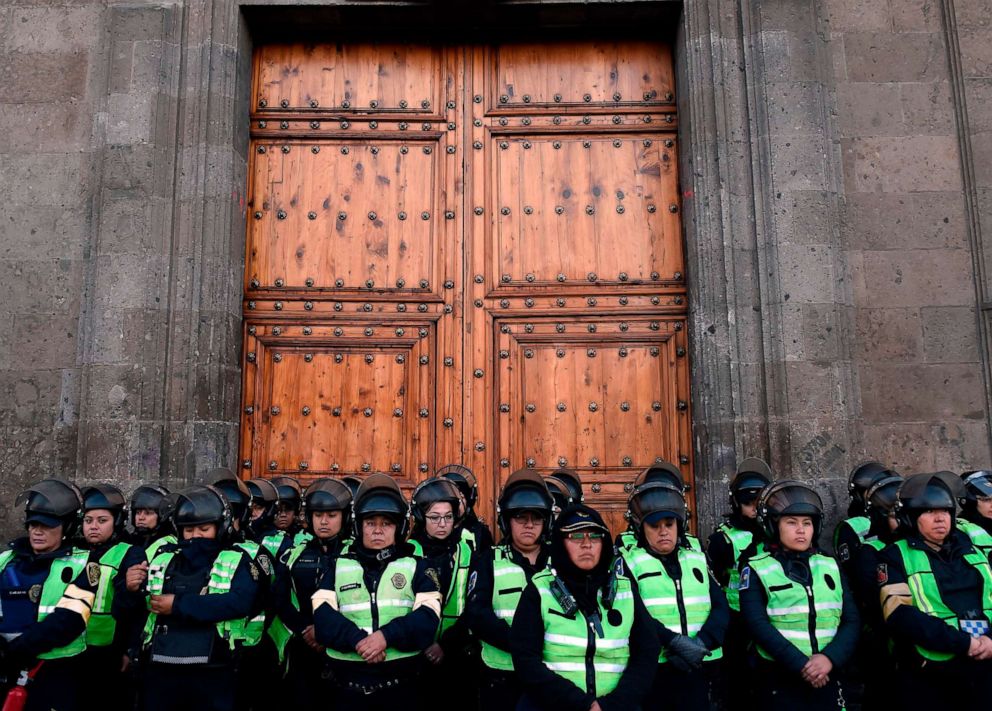
However, after a march last Sunday, he appeared to speak more favorably of the movement before condemning what he described as "another side" to it.
"This movement has several edges. It is a movement of women that legitimately fight for their rights and against violence, against femicides," Obrador said in a press conference. "But there is another side of those who are against us and what they want is for the government to fail and above all that the Fourth Transformation of the public life of the country cannot be consummated. It is the conservatism disguised as feminism or whatever it may be."
María Antonieta Alcalde, the director of Ipas Central America and Mexico, told ABC News that the "enough is enough feeling" many protesters have begun to exhibit were on display in the protests for Escamilla and Fatima.
"I think these two cases are just examples of a movement that has been invigorated little by little," Alcalde said. "It's a feminist movement that has been there for a long time, but is finally becoming public."
Though there is not a clear reason for why violence has increased, both experts said a cultural overhaul is needed to make strides against the problem. They also urged against the assumption that because there has been a rise in crime in general in Mexico, that coincides with an increase in female homicides.
“It is about changing the judicial system, changing our education system. Having sexual education programs in the schools,” Alcalde said. “It’s about really changing the culture.”
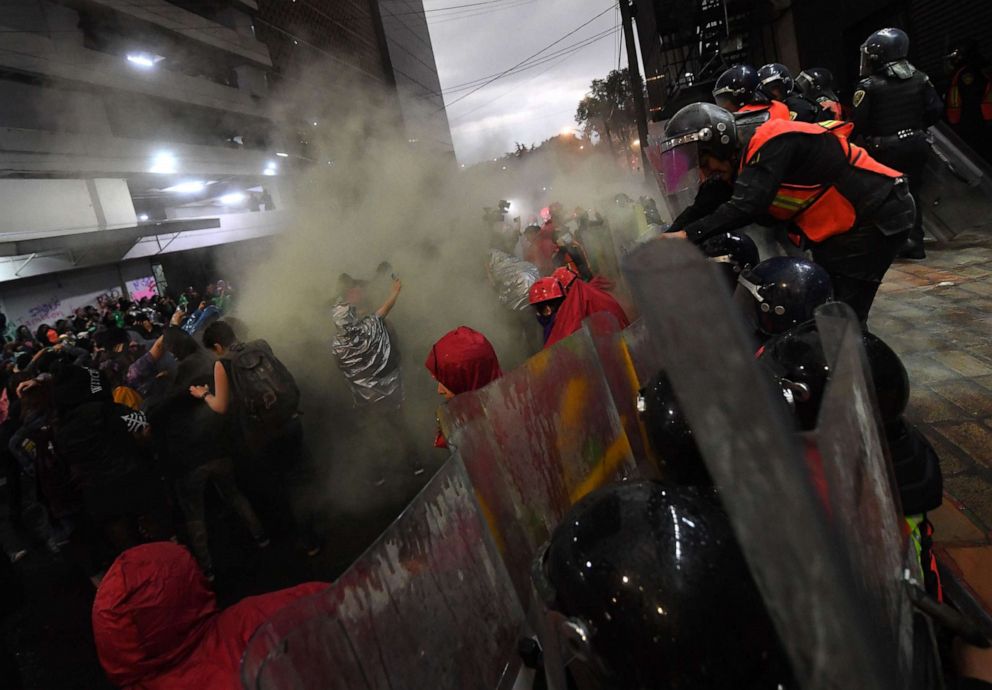
Proper investigations and prosecutions of feminicide are also needed in order to address the issue, they said.
García-Del Moral noted that while some argue for harsher sentences, it would prove meaningless if the government didn’t change the way they view femincide.
“If 8 out of 10 crimes are not even prosecuted, then what’s the point?” she said.
And while the movement doesn’t appear to be slowing down, both experts feared that neither would the killings without difficult conversations about Mexico.
“We want to be safe. We want to be alive, but that’s not enough,” Alcalde said. “Violence against women is about not having equal salary. It’s about forced motherhood. It’s about access to abortion."
“The discourse is the minimum: Don’t kill us. But it goes way beyond that.”
ABC News' Jose Cohen and Mario Romo contributed to this report.
